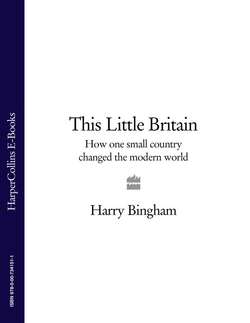Читать книгу This Little Britain: How One Small Country Changed the Modern World - Harry Bingham - Страница 6
SHAW’S POTATO
ОглавлениеThe playwright and would-be spelling reformer George Bernard Shaw famously pointed out that, using only common English spellings, we could write the word fish as ghoti:
F: gh as in rough I: o as in women SH: ti as in nation
Shaw couldn’t have been trying very hard, if this was the best he could come up with. If he’d turned his attention to the other half of Britain’s national dish, he could perfectly well have come up with ghoughbteighpteau for potato:
P: gh as in hiccough O: ough as in though T: bt as in debt A: eigh as in neighbour T: pt as in pterodactyl O: eau as in bureau
Other languages have their eccentric spellings, of course, but English is in a league of its own. French, German, Spanish, Italian and Russian all spell more or less as they sound. English just isn’t like that. If you heard individual words from this paragraph and were asked to write them out, how would you know to choose more rather than moor or maw? Know rather than no? Would rather than wood? Write rather than right or rite? Or rather than oar, ore or awe? Their rather than they’re or there? You rather than ewe? Course rather than coarse? But rather than butt? In rather than inn? For rather than four, fore or even (for those acquainted with the archaic term for Scottish gypsies) faw? The answer is that, of course, you couldn’t. But nothing happens without a reason, and the strange spellings of English have their reasons too, lurking deep in the heart of Shaw’s potato.
